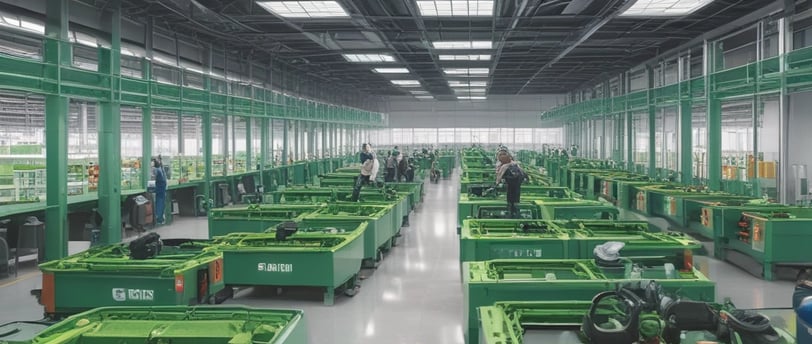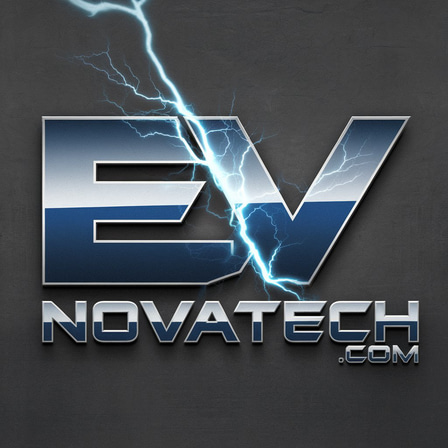"India’s EV Revolution Takes a Giant Leap: Bengaluru’s Groundbreaking Lithium-Ion Battery Recycling Facility"
LICO Materials' advanced lithium-ion battery recycling plant in Bengaluru is set to transform India's EV landscape by enhancing sustainable energy storage, reducing import reliance, and scaling up battery recycling to support the country's ambitious EV adoption targets.
BLOG POST
evnovatech.com
12/23/20245 min read


This Bengaluru Plant is Set to Revolutionize India's EV Battery Recycling and Accelerate the EV Revolution.
Short Description: LICO Materials' cutting-edge lithium-ion battery recycling facility in Bengaluru is a game-changer for India's EV ecosystem, aiming to boost sustainable energy storage, reduce dependence on imports, and scale up battery recycling to meet the nation's EV adoption goals.
A Game-Changer for India’s EV Battery Future: The Bengaluru Facility That Could Lead the Charge
India’s electric vehicle (EV) revolution is accelerating faster than ever, but one crucial element still poses a significant challenge: how to secure a sustainable and reliable supply of battery materials. In the heart of Bengaluru, a transformative initiative is tackling this challenge head-on. LICO Materials, a leading player in the clean energy sector, has launched a state-of-the-art lithium-ion battery recycling facility, positioning itself as a key player in shaping the future of India’s EV ecosystem.
With an annual in-feed capacity of 4 GWh, this plant is not just a step forward—it’s a leap toward realizing India’s vision of a greener, more self-reliant future. And with plans to scale up to 10 GWh within the next few years, LICO is aiming for nothing short of a revolution in the country’s battery supply chain. This facility is set to play a pivotal role in supporting India’s ambitious target of achieving 30% EV adoption by 2030.
The Promise of the Bengaluru Facility
The launch of LICO’s lithium-ion battery recycling plant in Bengaluru could be a game-changer for India, but what makes it so special? For starters, this isn’t just a facility designed to process used EV batteries; it’s an investment in the very heart of the circular economy. The plant’s primary goal is to recover critical materials, such as lithium, cobalt, and nickel, from old batteries and reintroduce them into the supply chain.
By 2027, LICO aims to recycle and repurpose up to 2,00,000 metric tonnes of EV batteries annually—an ambitious target that will directly address supply chain shortages for essential battery materials. As India accelerates toward EV adoption, the demand for raw materials to build new batteries will increase. This facility will provide an answer by reclaiming valuable metals from the old batteries, reducing the need for virgin mining and cutting down on the environmental impact.
Sustainable and Environmentally Friendly Battery Recycling
One of the standout features of LICO’s plant is its zero-liquid-discharge (ZLD) recycling process. Unlike traditional battery recycling methods that generate harmful byproducts, this environmentally-friendly process ensures that no liquid waste is discharged into the environment. This innovative approach not only makes the process cleaner but also aligns with the growing global focus on sustainability.
Moreover, the plant’s downstream expansion includes the establishment of a hydrometallurgy plant, which is expected to be operational within the next two to three years. This facility will focus on recovering high-purity metal salts from the black mass produced during recycling. These high-quality materials will then be supplied to gigafactories and energy storage systems, closing the loop in the battery supply chain and creating a self-sustaining ecosystem for India’s EV and energy storage sectors.
India’s Path to Battery Independence
As Gaurav Dolwani, CEO of LICO Materials, emphasizes, this initiative goes beyond just recycling batteries. It’s about making India less dependent on imports for critical battery components and contributing to the nation’s energy transition. Currently, India relies heavily on imports for key battery materials, such as lithium and cobalt. By investing in domestic recycling and material recovery, LICO is reducing this dependence, which could have profound implications for the energy and automotive industries.
The timing couldn’t be better. India’s energy storage sector is expected to grow exponentially, with projections estimating a reach of 42 GW by 2032. This presents a unique opportunity to build a robust, sustainable, and self-sufficient supply chain that can meet both EV and energy storage demands.
The Circular Economy: An Essential Piece of the EV Puzzle
The future of EVs in India isn’t just about building more cars; it’s about building a sustainable ecosystem where resources are constantly recycled, reused, and repurposed. LICO’s facility will play a central role in creating this circular economy for batteries, ensuring that as the number of electric vehicles on the road grows (the industry is projected to expand by 250% in the coming years), the necessary materials will be available, and at a much lower environmental cost.
The move toward a circular economy also means that when EV batteries reach the end of their life, they won’t just become waste—they will be resources for new products. This shift is essential for reducing the carbon footprint of the EV industry and ensuring that the transition to clean energy is both effective and sustainable.
What’s Next for LICO Materials?
LICO’s investment in this Bengaluru facility is just the beginning. In the next few years, the company is set to invest ₹250 crore in establishing a hydrometallurgy plant. This facility will focus on the recovery of high-purity metal salts, adding another layer of value to the recycling process. By doing so, LICO is closing the loop in the battery supply chain and ensuring that India remains at the forefront of the global energy storage revolution.
With its ambitious targets, LICO is not just building a recycling plant—it’s building the foundation for a cleaner, greener, and more sustainable energy future for India.
Frequently Asked Questions (FAQ)
1. What is the LICO Materials lithium-ion battery recycling facility in Bengaluru? The LICO Materials facility in Bengaluru is a cutting-edge plant designed to recycle lithium-ion batteries, recover valuable materials such as lithium, cobalt, and nickel, and reintroduce these materials into the supply chain for electric vehicles (EVs) and energy storage systems.
2. How will this facility impact India’s EV industry? This facility is crucial for meeting India’s growing demand for EVs by ensuring a sustainable supply of critical battery materials. It also reduces the country’s reliance on imports for these materials and supports the transition to clean energy.
3. What makes LICO’s recycling process environmentally friendly? LICO’s plant uses a zero-liquid-discharge (ZLD) process, which ensures that no liquid waste is discharged into the environment during recycling. This makes the process cleaner and more sustainable than traditional recycling methods.
4. How much EV battery waste does LICO plan to recycle annually? LICO aims to recycle and repurpose up to 2,00,000 metric tonnes of EV batteries annually by 2027, addressing supply chain shortages for essential battery materials.
5. What are LICO’s future plans for this facility? LICO plans to scale up the plant’s capacity to 10 GWh within the next few years and invest ₹250 crore in a hydrometallurgy plant to recover high-purity metal salts from recycled materials, further strengthening India’s battery supply chain.
6. How does this facility contribute to a circular economy? By recycling used EV batteries and recovering valuable materials, LICO is creating a circular economy where resources are reused and repurposed, reducing waste and the environmental impact of battery production.
This Bengaluru facility by LICO Materials is more than just a recycling plant—it’s a beacon for the future of India’s electric vehicle and energy storage industries, driving the country closer to its clean energy goals.
